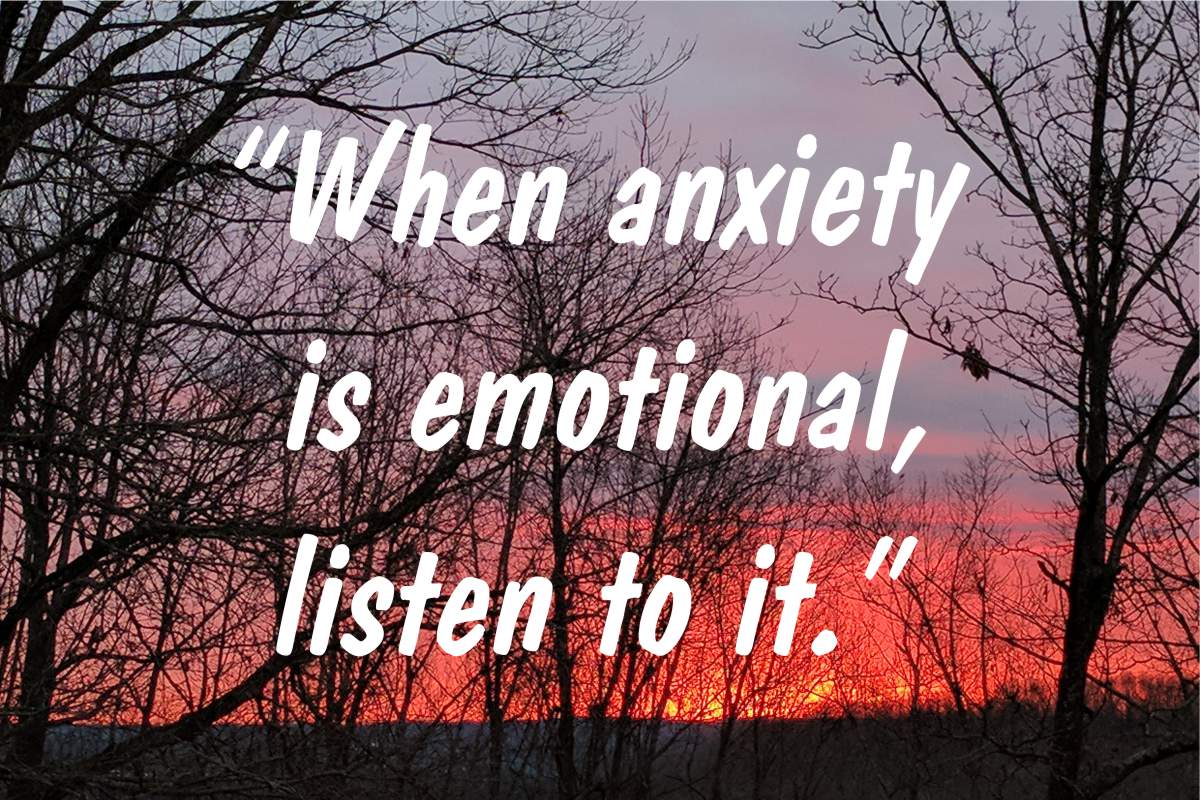










Popular Articles
Crazy-Makers: Dealing with Passive-Aggressive People
Why Are People Mean? Don't Take It Personally!
Struggling to Forgive: An Inability to Grieve
The Secret of Happiness: Let It Find You (But Make the Effort)
20 Steps to Better Self-Esteem
7 Rules and 8 Methods for Responding to Passive-aggressive People
What to Do When Your Jealousy Threatens to Destroy Your Marriage
Guide to How to Set Achieveable Goals
Catastrophe? Or Inconvenience?
Popular Audios
Audio Version of Article: Crazy-Makers: Passive-Aggressive People
Audio Version of Article: Why Are People Mean? Don't Take It Personally!
15 Coping Statements for Panic and Anxiety
by Monica A. Frank, PhD
Coping statements can be part of your strategy to manage anxiety. What are coping statements? When you struggle with anxiety you are usually engaging in fearful and/or inaccurate self-talk which tends to increase the anxiety. The purpose of coping statements is to counter this anxious self-talk.
This series provides an explanation of some common coping statements. The best way to use them is to identify the ones that are most calming to you and repeat them over and over when you are anxious sort of like a mantra. Combining a single statement with taking slow breaths can be particularly helpful.
Coping statement #4: “When anxiety is emotional, listen to it.”
Anxiety sometimes is a message. Many people who have problems with anxiety are so caught up in their fears of it they don't truly receive the message of the anxiety. As a result they are unable to resolve the problem the anxiety is trying to illustrate.
For instance, I had a client who had a fear of driving long distances, or even riding with someone, due to having panic attacks while traveling on a highway. When we explored this I found that it started when she went to visit her family who lived a couple hours away. Although she didn't want to acknowledge it, she had a tumultuous relationship with her mother who tended to be very critical. Due to the panic attacks she was unable to visit her family. The panic attack was an emotional signal that she didn't want to visit her family and for her to resolve the panic she needed to accept that was okay.
Distinguishing whether anxiety is physical or emotional and the message it is trying to convey can help resolve the anxiety. Some common messages:
1) Conflict. Anxiety often is caused by conflict whether it is external or internal. External conflict may be obvious such as an argument with someone. Internal conflict commonly occurs when you have to make a decision between things that may be equally attractive or equally undesirable.
2) Avoidance. As the example illustrates, sometimes there are situations that you may not want to deal with at all. Thus, the anxiety is telling you to avoid the situation.
3) Harm. Anxiety can arise when our internal system assesses that a threat may be present. For instance, if you are walking down a dark street and hear footsteps behind you, anxiety can be a message to be cautious.
It is important, though, not to assume that all anxiety is emotional. The problem is that when some people have anxiety related to an emotional event, the tendency is for others (including therapists) to assume that all anxiety is related to emotions. As previously discussed in coping statement #3, this is not true. Various causes can lead to anxiety symptoms. And for some people, their system is genetically revved up which makes it difficult to determine when emotions might be involved.
So don't automatically look for emotional reasons for the anxiety. However, when anxiety is related to emotions, the best course of action is to address the situation triggering the emotion. Thus, when you have anxiety, try to listen to it. Determine what your body is trying to tell you so you can resolve it.
Permission to reprint this article for non-commercial use is granted if it includes this entire copyright and an active link.














